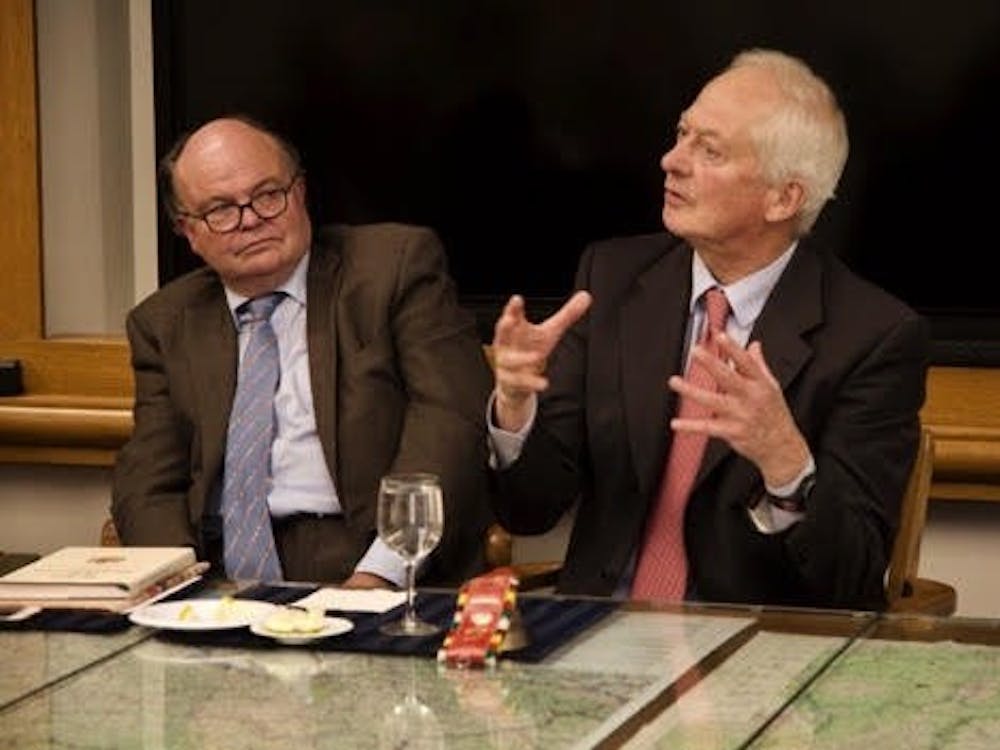Costanzo, a countertenor, took a major step toward an opera career when he was selected last Sunday as one of the four winners of the 2009 Metropolitan Opera National Council Auditions. Costanzo, who was a semifinalist in the 2008 competition, was chosen based on his performance in the Grand Finals Concert, in which he was accompanied by the Metropolitan Opera Orchestra.
“You work really hard on these arias, and to think of performing them with the orchestra on that stage, it’s a dream come true,” Costanzo said. “I was just thrilled and honored to be chosen and excited to connect Princeton to the arts.”
The Metropolitan Opera National Council Auditions are “designed to discover promising young opera singers and assist in the development of their careers,” according to the organization’s website. Singers compete in first-round auditions in 45 districts throughout the United States and Canada, from which individuals advance to successive rounds. Costanzo advanced through five rounds of auditions to earn his title of Grand Winner and the $15,000 cash prize.
“It was like finding out that [Costanzo] had won an Oscar. I was thrilled,” Michael Pratt, conductor of the Princeton University Orchestra (PUO) and director of the Program in Musical Performance, said regarding the news.
Pratt first met Costanzo when the singer was in the eighth grade and performed in an opera Pratt organized. “He’s quite extraordinary. It’s not just the voice, which is quite amazing. Back in the eighth grade, he already was an amazing performer. He sang like an angel,” Pratt had encouraged Costanzo to keep Princeton in mind when applying to college four years later.
Both Costanzo and Pratt said the benefits of the award extend far beyond the money.
“The most important thing is the award … furthering your career,” Pratt said, noting that Constanzo’s winning performance attracted the attention of individuals with significant influence in the musical world. “It’s just a tremendous amount of exposure,” Pratt explained. “Every big agent in New York was there.”
Winning the competition is an inestimable opportunity to break into the opera scene, as many of the past winners have gone on to have successful careers with the Metropolitan Opera, Costanzo said.

“The judges at the competition are the most important people in the Met. Knowing the stage directors and the coaches — having an ‘in’ — is a major part of the award,” Costanzo explained.
And in he is. Costanzo received a letter at the awards ceremony instructing him to be ready to begin training with a conductor for the final round of the competition, he said.
Costanzo began his professional career at age 11, when he toured with the Broadway show “Falsettos” and performed on Broadway in “A Christmas Carol.”
He has since performed with many orchestras, including the National Symphony Orchestra, and in a variety of formats, including recitals, Broadway shows and film.

Costanzo is a countertenor, an uncommon male singer with a vocal range similar to that of a female contralto or mezzo-soprano. This allows him to apply his characteristic musical mastery and skill to a repertoire not often heard in operatic performance, which is exactly what he did with his unconventional Handel piece in the Met auditions, said music professor Wendy Heller, Costanzo’s senior thesis adviser and director of the Program in Italian Studies.
“He has just a glorious high register. He can use the range very well. His voice is beautifully managed. It’s one thing to be born with a good voice, but another thing to perform so well with it,” she said.
Costanzo’s thesis was a musical performance of “The Double Life of Zefirino.” The composition, written by Costanzo, was based on his research on the castrati, male singers in 18th-century Italy who were castrated at puberty to prevent their voices from deepening.
His performance combined elements of concerts, plays and operas and represented collaboration among multiple departments. The performance consisted of the title character, a castrato played by Costanzo, telling his story through dialogue and arias, accompanied by two dancers and members of PUO.
Heller assisted Costanzo in selecting arias that would be historically appropriate for his performance.
“He has a wonderful voice. It’s a beautiful instrument that he uses very well. He also has that certain stage charisma. When he’s singing, you can’t take your eyes off him,” she said.
Pratt called the performance “a tremendous success. It was a sensation.”
“We had never had anything like that before,” he added. “It will be a long time before we have a production on that scale.”
Costanzo received the Lewis-Sudler Prize for extraordinary achievement in the arts upon his graduation from Princeton, after which he earned his Master in Music at Manhattan School of Music in 2008.
Pratt and Heller noted the collaboration that took place between Costanzo and the music department to develop his talents during his time at the University. Heller added that several staff members of the Department of Music attended Costanzo’s performance at the Met.
“That’s testament to how the music department has treasured Anthony. We feel we were able to nurture something in him he wouldn’t have had at a conventional musical school,” she said.







